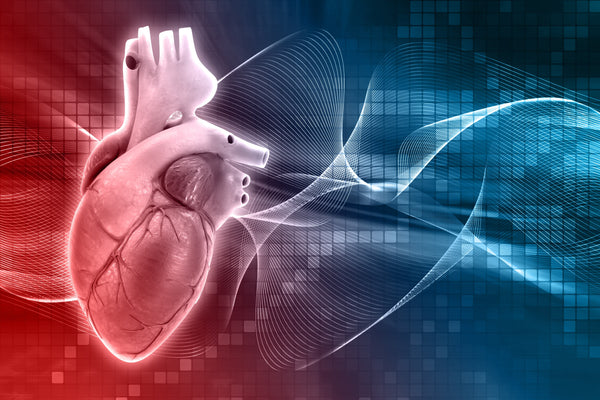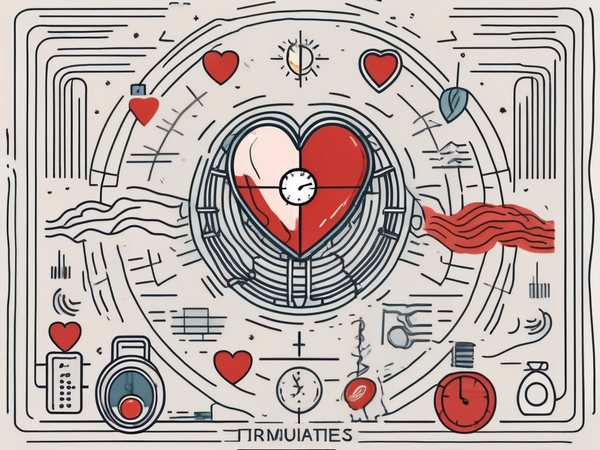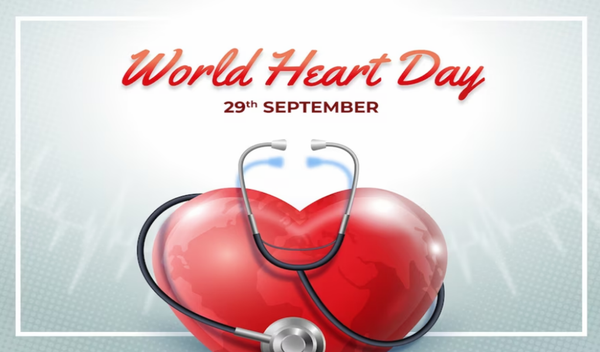Vitamins and minerals play a significant role in our overall well being. Deficiency in any one of them can severely affect our health in the long run. One such vital nutrient is vitamin B12, which is also known as cobalamin. This is an essential water soluble vitamin that plays a pivotal role in red blood cell production, DNA synthesis, brain and neurological health improvement, and so on. Deficiency of this nutrient can lead to serious health discrepancies such as paranoia, depression, delusions, memory loss, loss of taste and smell, anemia, weakness, tiredness, and the like. However, did you know that low vitamin B12 intake could also impact your heart health? Well, it’s true. Let’s find out how!
Vitamin B12 and Heart Health
Out of the innumerable factors that can affect your heart health, one of them is homocysteine. Homocysteine is a type of amino acid, a form of chemical that the body uses to make protein. Usually, vitamins like folic acid, vitamin B6 and vitamin B12 break down this amino acid into an essential substance that your body requires for its growth and proper functioning. Ideally, there should be very little homocysteine in the blood as if it accumulates, it could lead to an increase in the formation of clots in the heart’s blood vessels.
There are many reasons why homocysteine can be elevated in the body. These reasons include poor diet, bad lifestyle habits, particularly smoking and high caffeine and alcohol intake, certain prescription drugs, rheumatoid arthritis, poor thyroid function, and diabetes, among other things.
There are emerging studies, which show that vitamin B6, B12 along with folic acid have the potential to reduce the risk of cardiovascular ailments by reducing the levels of this amino acid in the body. Needless to say, if your body lacks enough reserves of this essential nutrient, especially when you are in your 40s and 50s, could put you at a risk of a heart attack, particularly if the homocysteine level in the body is high. While additional research is required to corroborate the efficacy of the aforementioned nutrients in reducing the homocysteine levels in the body, it is still enough to get you to maintain healthy reserves of these essential vitamins in the body.
Mild deficiency of vitamin B12 doesn’t affect the health as much, however, if it is left undiagnosed and untreated for a long time, it could also lead to acute weakness, tiredness, lightheadedness, shortness of breath, and heart palpitations.
To know the other ways in which vitamin B12 deficiency can affect one’s health, and its importance in our body, read our blog, ‘Vitamin B12: Here’s why your Body Needs it.’
So what’s the solution?
It is thus recommended to include vitamin B12 -rich foods in your diet. The most common sources of vitamin B12 include foods of animal origin such as eggs, poultry, meat, fishes, sea food, and dairy products. Vegetarians can have fortified breakfast cereals and nutritional yeasts, which have high bioavailability. However, vegans have limited options. You can also consume supplements if the foods you consume don’t provide you with adequate levels of vitamin B12.
You can try out Wellbeing Nutrition’s Vegan vitamin B12 Melts to meet your nutritional requirements, particularly if you are vegan. Research shows that nearly 80% of the population in India is deficient in B12. That is because a majority of the population in the country is vegetarian whose daily diet lacks foods rich in vitamin B12. Additionally, if a person has acidity, they won’t be able to absorb B12 effectively, leading to a plethora of health problems such as anemia, low energy, anxiety, liver problems, constipation, and possibly poor heart health as well.
That is why Melts vegan vitamin B12 is the best option for you as it is available in the form of easy-to-melt oral thin strips that dissolve the moment the strips touch your tongue. This is because it embodies the patented German technology called the Unison Effect, which is a sophisticated sublingual delivery system. Moreover, unlike other brands that mostly use folic acid, Melts Vegan Vitamin B12 uses folate, which gets converted into an active form of vitamin B 9.5 MTHF in the digestive system.
What are the ingredients used in Melts Vegan Vitamin B12?
These products are 100% plant-based. The ingredients used in these strips are Vegan vitamin B12 (prepared with a bioactive form of B12, methylcobalamin, containing the highest potency at 99% purity), folate (the most biologically active form of Vitamin B9), Bacomind (which is a patented and clinically tested extract that is touted to improve memory and cognition containing 9 bioactives of Bacopa Monnieri and curcumin, which is known for its anti-inflammatory properties. We have a clinically patented curcumin, known as CurcuWIN, which provides 46x better absorption.
Final Takeaway
Vitamin B12 is an essential water soluble nutrient that prevents amino acid, homocysteine, from accumulating and clotting in the heart’s blood vessels, thereby preventing heart diseases. You can get sufficient vitamin B12 from the food you eat but should your diet be deficient of this nutrient, don’t shy away from including vitamin B12 supplements to your regular routine. Give Wellbeing Nutrition’s Melts Vegan Vitamin B12 to replenish this essential micronutrient in your body. Oral thin strips ensure better absorption and bioavailability compared to traditional pills and capsules. This product is also a perfect option for vegans.
References:
- O'Leary F, Samman S. Vitamin B12 in health and disease. Nutrients. 2010;2(3):299-316. doi:10.3390/nu2030299. (https://www.ncbi.nlm.nih.gov/pmc/articles/PMC3257642/)
- Gilfix BM. Vitamin B12 and homocysteine. CMAJ. 2005;173(11):1360. doi:10.1503/cmaj.1050170. (https://www.ncbi.nlm.nih.gov/pmc/articles/PMC1283514/)
- Vitamin B12 Deficiency, American Academy of Family Physicians. (https://www.aafp.org/afp/2003/0301/p979.html)
- Obeid R, Heil SG, Verhoeven MMA, van den Heuvel EGHM, de Groot LCPGM, Eussen SJPM. Vitamin B12 Intake From Animal Foods, Biomarkers, and Health Aspects. Front Nutr. 2019;6:93. Published 2019 Jun 28. doi:10.3389/fnut.2019.00093. (https://www.ncbi.nlm.nih.gov/pmc/articles/PMC6611390/)
- Vitamin B12, The Nutrition Source, Harvard TH Chan, https://www.hsph.harvard.edu/nutritionsource/vitamin-b12/






















 DOWNLOAD NOW
DOWNLOAD NOW
